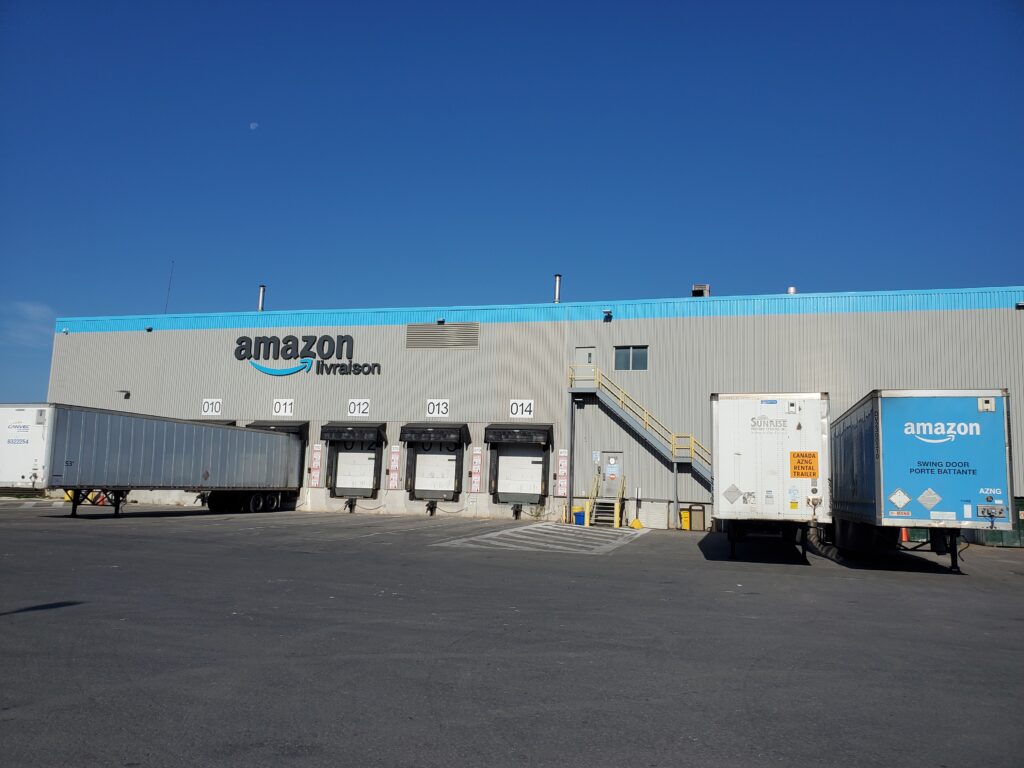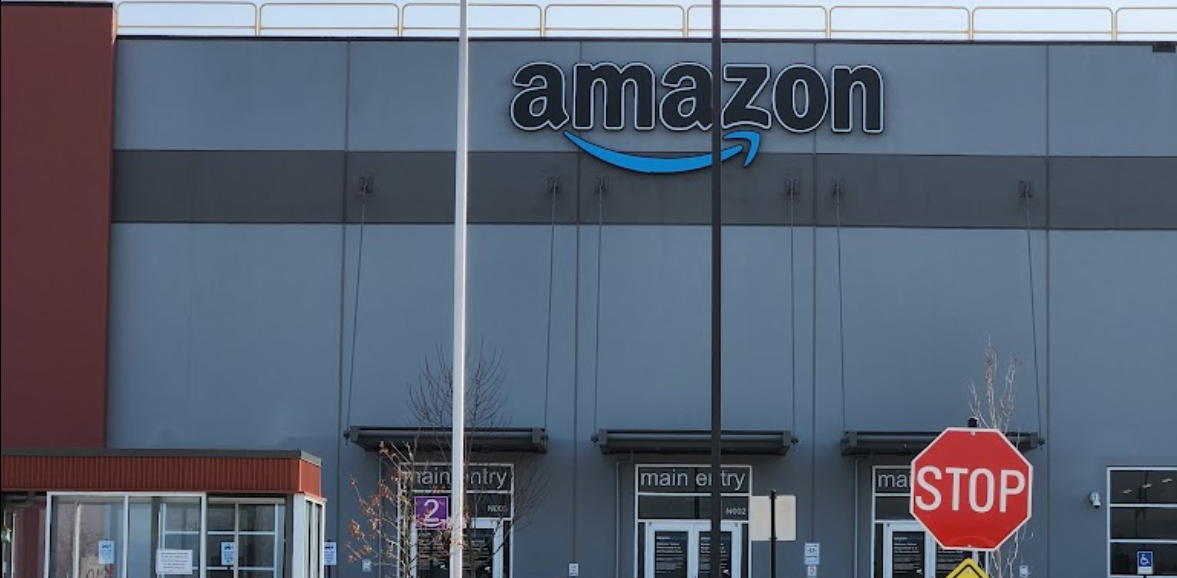Amazon announced last Wednesday that it will close all operations in the province of Quebec. The news has sent shockwaves through the labour movement, including in British Columbia, where Unifor has been fighting for union certification at the Delta YVR2 fulfilment centre.
"From Unifor's perspective, we're gutted for the workers there," said Unifor organizer Justin Gniposky in an interview with The North Star.
"Whether the CSN [union] members or the non-union members, there's about 2,000 workers there. These jobs aren't necessarily gone, but they're talking about contracting out [...] We've seen this before. When Zellers went out of business, Target played the same game. It's common in aviation contracts, too. There's nothing more un-dignifying than making workers reapply for their own jobs at what will certainly be less money and less benefits."
"We've sent solidarity to the CSN, and you know, they're not a close ally of ours. We've had a troubled history. But in this situation, both us and them realize that this fight is about the working people in these facilities, and it's bigger than any animosity we've had previously. CSN is clear. This is not going away. They are not turning their back on these workers, including their 300 members, and we're going to be there to support them. And I think the labour movement in general is going to have to look at this!"
Unifor currently has a case against Amazon before the B.C. Labour Relations Board (BCLRB). The union withdrew an initial application for certification in April after Amazon reported a "suspiciously high number of employees" at the facility.
Amazon has been accused of hiring seasonal, part-time and even unnecessary staff in order to fudge the number of employees on the books and stymie union certification. In B.C., a union can be certified when 55% of employees sign a union card.
These anti-union practices have been reported at the DXT4 facility in Laval, Quebec, where workers recently won certification, at the BHX4 facility in Coventry, England, and elsewhere.

"We are before the labour relations board right now," said Gniposky. "We're arguing that these workers should have been certified immediately and that Amazon has breached the Labour Relations Act in a number of places. One is stacking those numbers [of employees]."
Gniposky described a "wave" of illegal anti-union communication from Amazon: "That includes captive audience meetings. That includes literally every single TV in that place, every billboard, every little placard on things, all having messages about how terrible it would be for them to have a union. And, of course, it means stacking managers in there, and having managers hold these meetings, and talk to every single worker, daily, about what they think about the union."
"We're optimistic and we feel really strongly about our case and that [the BCLRB] will issue us remedial certification, and we intend to go to bargaining immediately."
Gniposky, who has been attending the BCLRB meetings, sees a profound contradiction between Amazon's words and actions:
"These guys are making the case, literally right now, before the vice-chair of the B.C. board, that the only reason the managers are there is because they care about the workers. The workers are the first and foremost piece of their operation, they're critical to it, and they want to make sure that they’re making change so that the workplace is better for [the workers]. In that same breath, they've just put 2,000 people out of work in Quebec, for what they're saying is specifically because of profits."
"They are spending millions, tens of millions, if not hundreds of millions fighting unions across North America, including right here in B.C. And they can't pay to work in Quebec for whatever reason, and yet on the flip side of that coin, they're spending all this money on increased staff [elsewhere]."
"They've got people like ripping tape off of the floors, to increase employees. Stuff that needs to get done and used to get done every six, seven, eight months, they're doing every two weeks. There's people literally standing around. If you went to that facility three years ago, and there would be no one standing around ever; now there's people just hanging out."

While Gniposky takes Amazon's threats and maneuvers in Quebec very seriously, he does not think they will stop the efforts of Amazon workers in Canada to join unions.
"Will this chill unionization drives? And what is the message to workers here? The easy way to take it is that if you join a union at Amazon you will lose your job. But I would say the message to workers here is a bit different. The message to workers ought to be: this can happen to you anywhere, and the best way to protect yourself is through a collective agreement, regardless of union."
"Workers are looking this in the face and saying, 'This is not good enough.' And not only is it not good enough, but we need representation and not just wages! And I think workers at Amazon will see through this as well, whether this is a scare tactic or not, I think they're saying, 'I can't afford not to fight back.'"
"The flip side of that is, the labour movement needs to work together. And we've had our challenges too, we'll be the first to admit it. But we're willing to come to the table and to work with everyone, including the CSN, who we've not had a positive relationship with for a long time. And see that workers are put first, not the politics of unions, said Gniposky.
"If Amazon gets away with this, without a fight back that's bigger than a boycott—a boycott on its own is not going to solve it. We have to work together. And if there's a beacon of hope outside of this, it's that this could be the movement [to organize Amazon] that repairs a lot of bridges."
"We're gonna need to work together, and no one union, Unifor or anyone else, is going to be able to effectively organize this number of worksites and bargain. So we need to have massive organizing drives that are coordinated. Beacons of hope will come, like in Laval, and I know CSN is going to fight back, and so will our folks in Delta. But we need more and it needs to be a coordinated effort."
The Amazon Canada and Unifor hearings at the BCLRB are expected to run until February 14.


